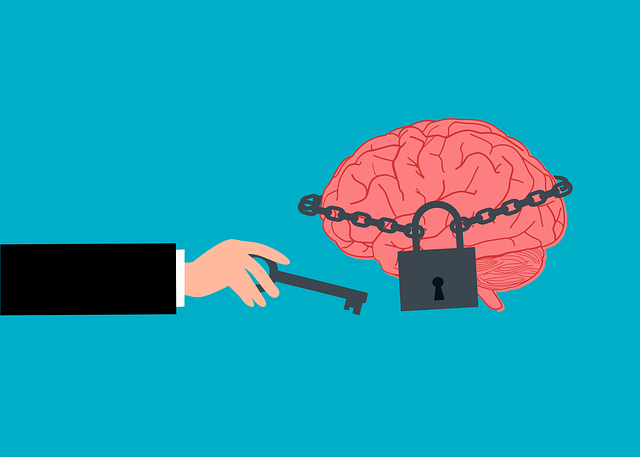Crisis Intervention Teams (CITs) in communities like Lafayette rely on specialized training from providers like Lafayette Bilingual Therapy to manage mental health crises effectively. These teams combine mental health experts, law enforcement, and paramedics for immediate support and resource connection. Lafayette Bilingual Therapy stands out with its emphasis on cultural sensitivity and linguistic expertise, offering comprehensive crisis intervention team training that addresses diverse community needs. Their multifaceted approaches include resilience building, mental wellness coaching, and cultural sensitivity, cultivating competent professionals ready to handle crises compassionately and professionally. Through interactive workshops, role-playing, and regular assessments, Lafayette Bilingual Therapy fosters a holistic learning environment, ensuring teams are prepared for high-pressure situations and promoting long-term team sustainability.
In today’s complex social landscape, effective crisis intervention is paramount. Crisis Intervention Teams (CITs) play a vital role in managing mental health emergencies, offering immediate support, and de-escalating situations. This article explores the critical function of CITs, focusing on Lafayette Bilingual Therapy—a specialized approach that caters to diverse linguistic needs. We delve into key components of crisis training programs, methodologies for enhancing team preparedness, and strategies for successful implementation and continuous improvement, emphasizing the impact of comprehensive training.
- Understanding Crisis Intervention Teams: Role and Importance
- Lafayette Bilingual Therapy: A Specialized Approach
- Key Components of Effective Crisis Training Programs
- Training Methodologies and Their Impact on Team Preparedness
- Implementation and Continuous Improvement Strategies
Understanding Crisis Intervention Teams: Role and Importance

Crisis Intervention Teams (CITs) are specialized groups of professionals trained to handle critical situations where individuals may be at risk of harm to themselves or others. These teams, often comprising mental health experts, law enforcement officers, and paramedics, play a pivotal role in communities across the country, including cities like Lafayette, where bilingual therapy services from providers like Lafayette Bilingual Therapy are essential for effective CIT training.
The primary goal of these teams is to de-escalate potentially dangerous situations, provide immediate support, and connect individuals in crisis with appropriate resources. By integrating various disciplines, CITs offer a comprehensive approach to addressing mental health crises. Social skills training, risk assessment techniques, and conflict resolution methods are all integral components of their repertoire. These strategies ensure that professionals are equipped to handle diverse scenarios, offering not just physical safety but also promoting long-term mental well-being.
Lafayette Bilingual Therapy: A Specialized Approach

Lafayette Bilingual Therapy stands out as a specialized approach within crisis intervention team training programs, focusing on addressing the unique needs of diverse communities. This program recognizes that effective trauma support services require cultural sensitivity and linguistic expertise. By providing comprehensive training, it equips teams with the skills to offer mental wellness support tailored to individuals from various language backgrounds.
The curriculum incorporates evidence-based practices alongside culturally adaptive strategies, fostering coping skills development in a way that resonates with diverse populations. This bilingual therapy approach not only enhances crisis response but also promotes inclusive and effective trauma care, ensuring that all individuals receive the specialized support they deserve.
Key Components of Effective Crisis Training Programs

Effective crisis intervention team training programs are multifaceted and tailored to prepare professionals for a range of high-pressure situations. At Lafayette Bilingual Therapy, we emphasize several key components to ensure comprehensive preparation. First, Resilience Building is paramount; equipping teams with coping mechanisms to manage their own stress and emotional responses allows them to remain calm and effective during crises. Second, Mental Wellness Coaching Programs Development plays a crucial role in fostering healthy work environments and promoting peer support, which are essential for long-term team effectiveness and sustainability.
Additionally, Cultural Sensitivity in Mental Healthcare Practice is integral to successful crisis intervention. Training should include scenarios that reflect diverse cultural backgrounds and promote understanding of how cultural differences can impact the presentation and management of crises. By integrating these elements, Lafayette Bilingual Therapy’s programs aim to develop well-rounded, resilient, and culturally aware crisis intervention teams ready to address a variety of situations with compassion and professionalism.
Training Methodologies and Their Impact on Team Preparedness

Crisis intervention team training programs employ various methodologies to equip mental health professionals with the skills needed to handle high-stress situations effectively. One prominent approach is role-playing, which simulates crisis scenarios allowing participants to practice their responses in a safe environment. This method enhances teamwork and communication among team members, fostering a deeper understanding of each other’s roles during actual crises.
Additionally, programs often incorporate interactive workshops, guest lectures from seasoned professionals, and case studies to provide comprehensive learning experiences. These diverse training methods not only improve individual skills but also boost the overall preparedness of crisis intervention teams. Organizations like Lafayette Bilingual Therapy recognize the importance of these techniques in developing competent healthcare providers with strong cultural competency skills. Equipping mental health professionals with effective tools, such as those taught through stress reduction methods and risk assessment training, ensures better patient outcomes and a more resilient team dynamic.
Implementation and Continuous Improvement Strategies

Implementing effective crisis intervention team (CIT) training programs requires a strategic approach and continuous improvement. At Lafayette Bilingual Therapy, we understand that CIT members come from diverse backgrounds, so our programs are designed to foster inclusive learning environments. We facilitate interactive workshops, role-playing scenarios, and debriefings to enhance communication strategies and build rapport among team members. Regular assessments and feedback sessions are integral to gauging the program’s effectiveness and identifying areas for improvement.
By integrating Mental Health Education Programs into our CIT training, we empower participants with valuable knowledge about recognizing and managing stress, anxiety, and other mental health challenges. This holistic approach ensures that crisis intervention teams are well-equipped to handle a wide range of situations. Through ongoing evaluation and collaboration, Lafayette Bilingual Therapy continuously refines its programs, ensuring they remain relevant and impactful in addressing the evolving needs of crisis intervention efforts.
Crisis intervention team training is a vital component in fostering better mental health support. As highlighted by Lafayette Bilingual Therapy’s specialized approach, understanding cultural nuances can significantly enhance team effectiveness during crises. By incorporating key components like scenario-based training and adopting innovative methodologies, organizations can ensure teams are well-prepared to handle diverse situations. Continuous improvement strategies, including regular simulations and feedback mechanisms, are essential for maintaining high levels of readiness. Effective crisis intervention training not only empowers individuals but also creates a more resilient community, offering hope and support when it matters most.














